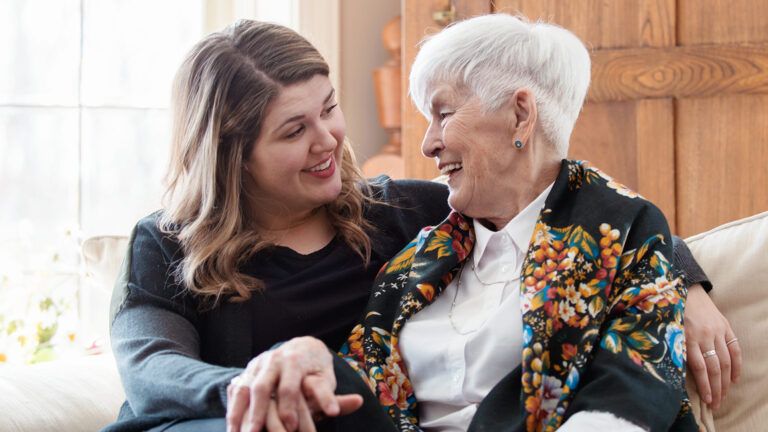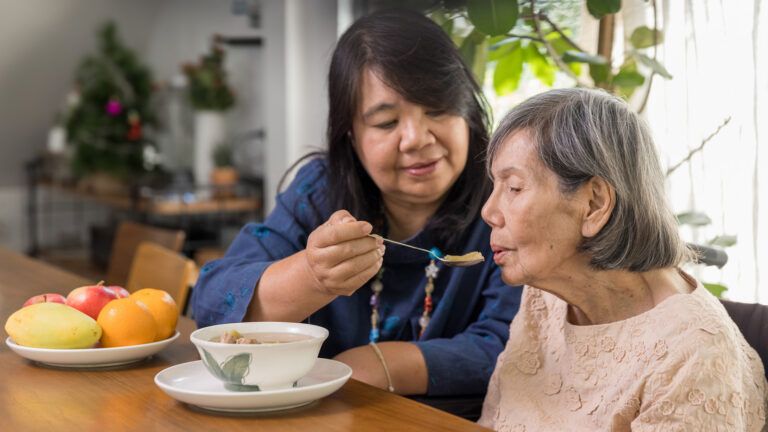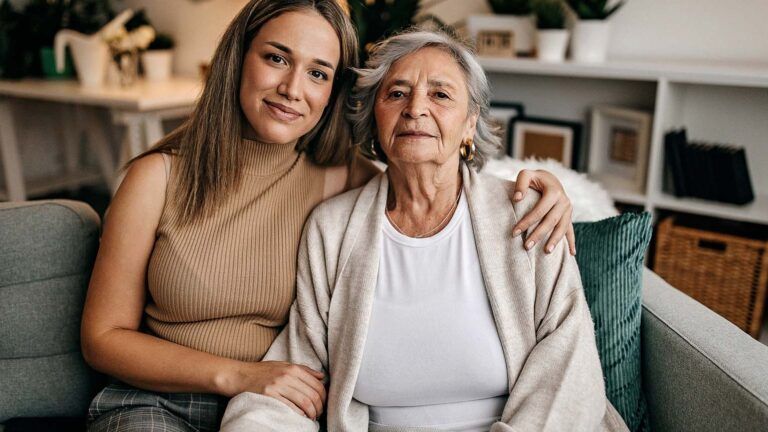Julie Hayes is the Content Manager at Benjamin Rose Institute on Aging.
Your loved one is being discharged from the hospital. You’re relieved, and you’re armed with prescriptions and a lot of details to remember: give these two meds in the morning, another three at night, this one with a meal . . . A meal? With so much to keep track of, it’s possible that the idea of preparing or arranging for balanced meals each day is not at the top of your to-do list. Yet a proper diet is crucial medicine for your loved one’s ongoing health. Nutritious food is vital to the healing process and can be a major factor in keeping him or her from having to go back to the hospital
Lack of nutritious food is the number one cause of poor health in the United States, and for older adults, the health problems caused by an inadequate diet can be even more severe. A poor diet can lead to functional disabilities, increased rates of infection, physical weakness, vulnerability to illness and increased hospital admissions and readmissions (Seligman, H. K., Laraia, B. A., & Kushel, M. B. (2010). Food insecurity is associated with chronic disease among low-income NHANES participants.The Journal of nutrition, 140(2), 304–310.). By seeing to it that your loved one eats well following a hospital stay, you can contribute greatly to his or her successful recovery.
Why does nutrition matter even more after a hospital stay?
One of the most serious obstacles to proper nutrition after a hospital discharge is food insecurity. The US Department of Agriculture (USDA) defines food insecurity as “a household-level and social condition of limited or uncertain access to adequate food.” Among the factors that can lead to food insecurity, are:
· Finances
· Living distance from stores that stock nutritious foods
· A means to travel and shop at these stores
· Ability to prepare meals
· Ability to eat meals without assistance.
A hospitalization, especially a lengthy one, can make it much more difficult for your loved one to leave the house or prepare his or her own meals.
An inadequate diet coupled with food insecurity can result in your loved one being readmitted to the hospital. According to the United Health Foundation, about 14.9 percent of older adults over the age of 65 were readmitted to the hospital within 30 days of their initial hospital discharge in 2019. Readmissions can be due to many things, but two of the leading causes—poor follow-up care and the development of illnesses or infections post-discharge—are connected to nutrition and can oftentimes be prevented by focusing more on diet, in tandem with medication.
How do I make sure my loved one eats right after leaving the hospital?
Rose Centers for Aging Well, a subsidiary of Benjamin Rose Institute on Aging, is currently leading the Nutrition Solution project, which provides home-delivered, medically tailored meals, a weekly check-in call from a volunteer, enhanced nutrition education to low income, food insecure older adults with chronic conditions such as diabetes or heart disease in Ohio’s Cuyahoga County. The project aims to decrease hospital readmissions, reduce food insecurity and mitigate social isolation. Central to the project is the concept of “food as medicine,” which views nutrition as an essential part of a holistic treatment plan to keep a loved one well following a hospital discharge.
The menus for the medically tailored meals of the Nutrition Solution project are designed by Registered Dietitians to meet specific nutritional needs. When considering your loved one’s meals, you should also take a similar approach of choosing foods tailored to his or her needs and medical conditions. To learn more about the kinds of meals that would be appropriate for your loved one, you should talk to his or her doctor, nurse practitioner or their other health care providers about their dietary needs. Some hospitals may have a Registered Dietitian or a Nutritionist on staff who can help with these issues and work with you to create menus tailored to these needs.
What else can I do to help my loved one maintain a proper diet?
Two key contributors to food insecurity are social isolation and a lack of support. Your presence and attention to your loved one’s needs can have a great impact on his or her health. Make it a point to monitor progress, as well as the quality and quantity of meals he or she is eating after leaving the hospital. This is especially important within the first thirty days. If your loved one needs help getting groceries or preparing meals, be ready to assist, or enlist the aid of other family members, friends or service providers in your community. Even if your loved one is able to make meals independently, you should ensure that he or she continues to eat in a healthy, well-balanced way. Many older adults may not have much appetite as a result of their medication or condition. Nonetheless, skipping meals can have an adverse impact on their health and should be avoided.
If finances are preventing your loved one from getting the food he or she needs, don’t hesitate to look into public assistance for support. According to the National Council on Aging, the Supplemental Nutrition Assistance Program (SNAP) is underutilized by older adults, and just 42 percent of eligible older adults were enrolled in the program in 2015. However, SNAP can be essential to providing healthy food to low-income older adults, and has contributed to the overall food security, nutritional wellness and positive health outcomes of older adults. To learn more about the application process for your state’s SNAP program, visit the Food and Nutrition Service’s locator. There are also online resources available to find dieticians and Meals on Wheels providers near you.






